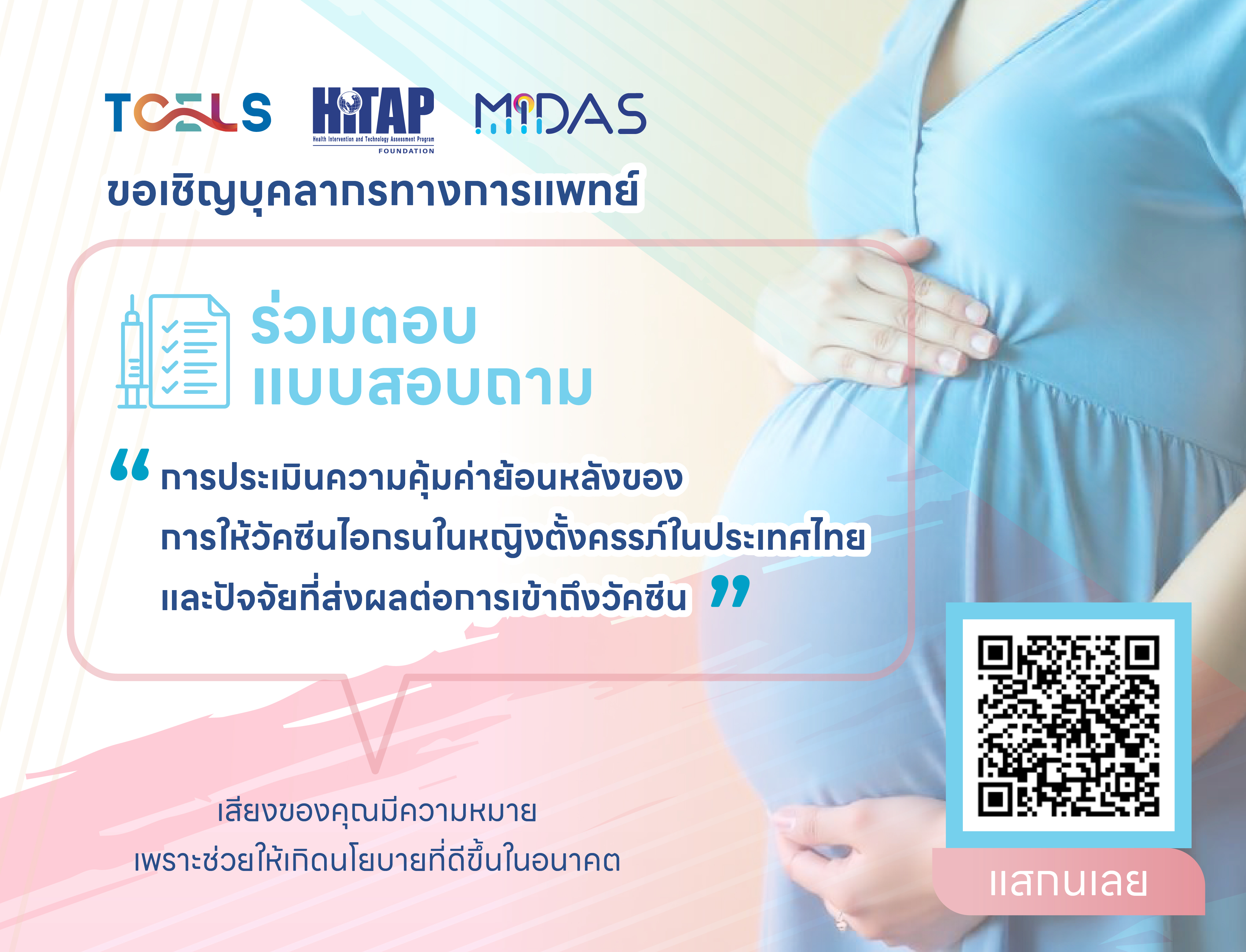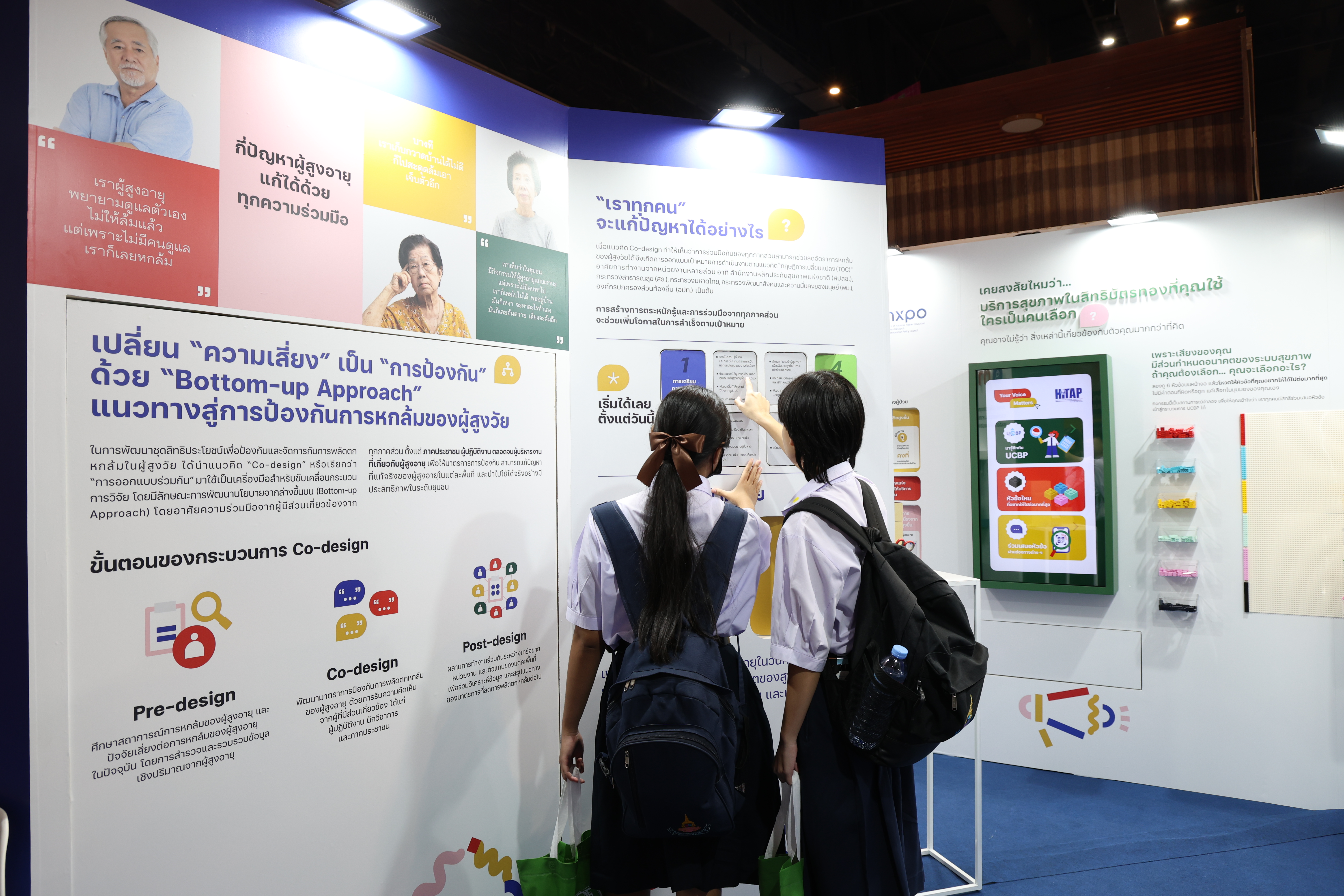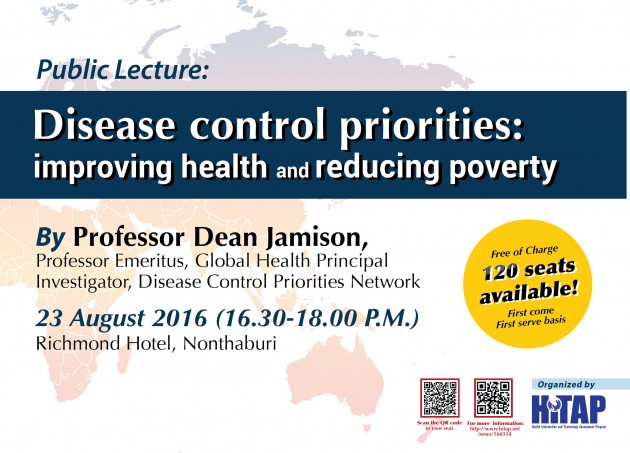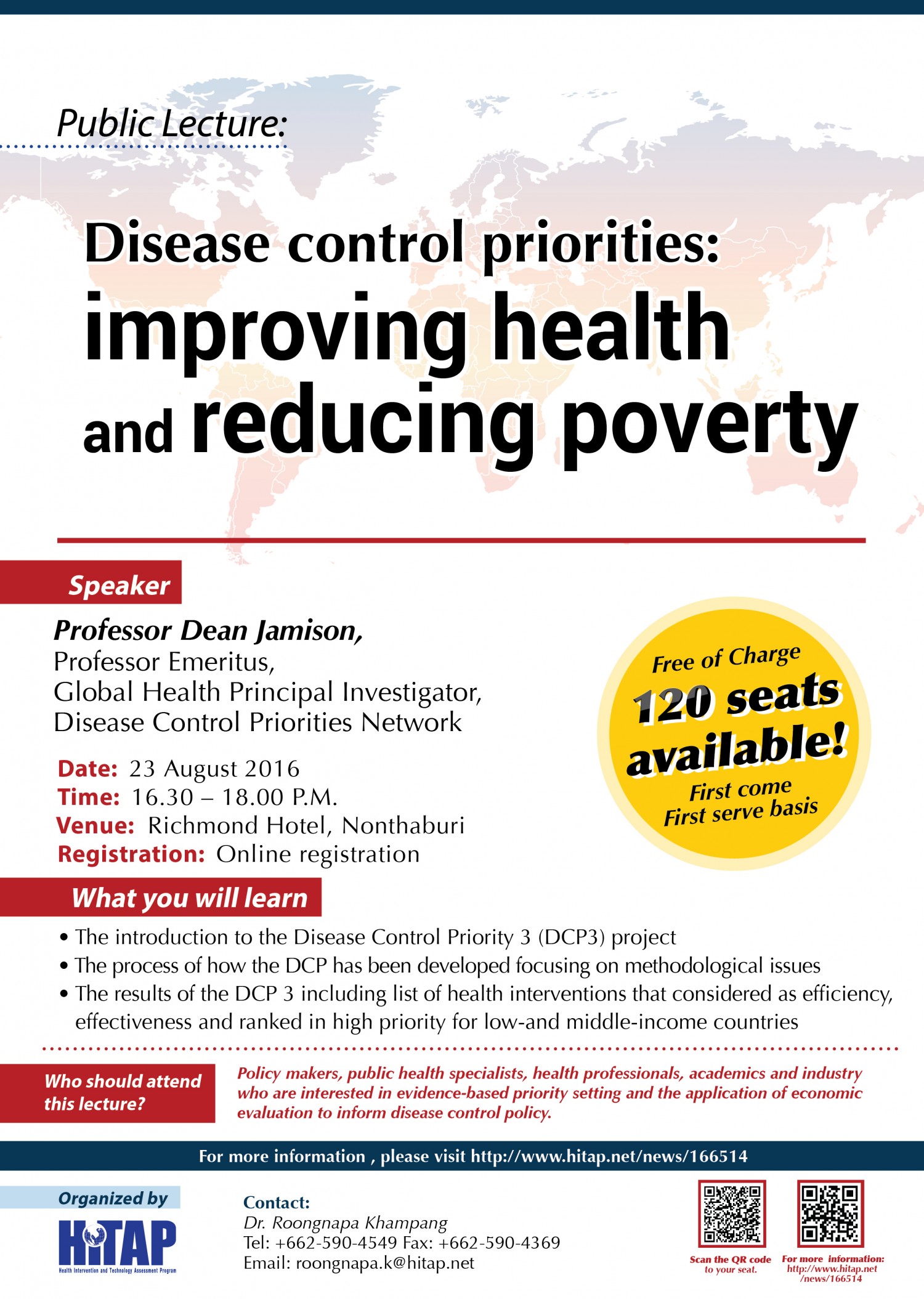ขอเชิญบุคลากรทางการแพทย์ร่วมตอบแบบสอบถาม “การประเมินความคุ้มค่าย้อนหลังของการให้วัคซีนไอกรนในหญิงตั้งครรภ์ในประเทศไทย และปัจจัยที่ส่งผลต่อการเข้าถึงวัคซีน”




Speaker
Professor Dean Jamison, Professor Emeritus, Global Health Principal Investigator, Disease Control Priorities Network
Date: 23 August 2016
Time: 16.30 – 18.00
Venue: Richmond Hotel, Nonthaburi
Number of participants: 120 seats available
Organizer: Health Intervention and Technology Assessment Program (HITAP)
Book your seat: http://goo.gl/forms/RQwe8mBUQ2nNiu8u1
What is Disease control priorities Project?
The Disease Control Priorities Project (DCPP) is an ongoing effort to assess disease control priorities and produce evidence-based analysis and resource materials to inform health policymaking in developing countries. The project aims to promote and support the use of economic evaluation for priority setting at both global and national levels.
The project is funded by the Bill & Melinda Gates Foundation and managed by the University of Washington’s Department of Global Health (UW-DGH) and the Institute for Health Metrics and Evaluation (IHME). DCPP has produced three volumes providing technical resources that can assist developing countries in improving their health systems. The Disease Control Priority 3 (DCP3) is the latest edition, building on its predecessors, DCP1 (1993) and DCP2 (2006).
What is the benefit of DCP project?
By providing an understanding of Disease Control Priority issues and information on effective interventions for the range of diseases, the previous volume of DCP 1 and 2 significantly contribute to global initiatives to improve the health of all people. The 3rd edition of the DCP will provide the most up to date evidence on intervention efficacy and program effectiveness for the leading causes of global disease burden. It will go beyond previous efforts by providing systematic economic evaluation of policy choices affecting the access, uptake, and quality of interventions and delivery platforms for low-and-middle income countries (LMICs). In addition, DCP3 highlights the use of extended cost-effectiveness analysis (ECEA) to incorporate equity issues and medical impoverishment into cost-effectiveness. For more information about DCP3 please visit http://dcp-3.org
About the speaker
Professor Dean Jamison is a pioneer for Disease Control Priorities. He is an economist internationally renowned for his research on how the field of economics impacts social welfare and global health.
What will you find in this lecture?
In this lecture, Professor Dean will give a brief introduction to the project, talk you through the process of how the DCP has been developed focusing on methodological issues, as well as presenting results of the DCP 3 including the list of health interventions for infectious and chronic diseases, including conditions related to environmental health, trauma and mental disorders that considered as efficiency, effectiveness and ranked in high priority for LMICs. In addition, the session will be moderated by Dr. Yot Teerawattananon, HITAP program leader.
This is a great opportunity for the attendants to share your experience and perspectives and also discuss with our guest speaker.
Who should attend this lecture?
Policymakers, public health specialists, health professionals, academics and industry who are interested in evidence-based priority setting and the application of economic evaluation to inform disease control policy.
Please note the continuing education credit for CME, CPE, CNE ,and etc. will not be included in this lecture.
Registration: no registration fee (first-come, first-served basis)
Online registration only, at http://goo.gl/forms/RQwe8mBUQ2nNiu8u1
Contact details:
Dr. Roongnapa Khampang
Tel: +662-590-4549
Fax: +662-590-4369
Email: [email protected]
